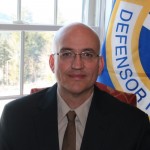By Dr. Allan Conkey, professor of Criminal Justice at American Military University
Numerous laws have shaped this great nation. One law that continues to influence the political and legal landscape is the Posse Comitatus Act, passed in 1878. The Posse Comitatus Act establishes guidelines on the federal government’s use of the armed forces for the strict purpose of policing its citizenry.
Here is what this act reads:
“Whoever, except in cases and under circumstances expressly authorized by the Constitution or Act of Congress, willfully uses any part of the Army or the Air Force as a posse comitatus or otherwise to execute the laws shall be fined under this title or imprisoned not more than two years, or both.” – 18 U.S.C. 1385, Sec. 1385.
The act applies to the Army, Air Force, Navy, and Marine Corps. Armed forces that are exempt include the Coast Guard, in peacetime, and state National Guard forces.
As with any law, the Posse Comitatus Act has both supporters and opponents. Those who support this legislation argue it’s essential in helping limit potential federal abuses of power. Opponents believe this act has fully outlived its usefulness in the post-9/11 world and should be abolished.
The solution lies somewhere in the middle. It is time for the act to be updated.
The Impact of the Posse Comitatus Act
The Posse Comitatus Act limits the use and participation of the military in policing the civilian population. However, it can be argued that such limitations are not based on the vague and frequently misunderstood law itself, but rather on the decisions of the military and, to a smaller degree, civilian leadership. This point aside, before this act the military played an integral part in helping local sheriffs and marshals enforce the law.
Arguably the staunchest supporters of this act are in fact military leaders, based on a very valid fear of mission creep if they were to be used for civilian policing. The Posse Comitatus Act does not fully prohibit the use of the military in domestic civilian matters. In fact, the act has been amended a number of times to ensure just the opposite. For example, it has been amended to help ensure military support to civilian law enforcement for joint initiatives such as the war on drugs.
[Related article: Police Militarization: Reality, Hype, or Natural Evolution?]
Hence, if the act is lacking it is due to its vagueness rather than any actual restriction in using military forces for domestic policing. Keep in mind that via the Insurrection Act of 1807, the president can legally direct military personnel to perform civilian law enforcement duties. This has been put into practice several times. In 1992, President Bush federalized the California National Guard to try and quell violence stemming from the Los Angeles riots following the beating of Rodney King. Such incidents demonstrate that military services can still be used in a civilian law enforcement capacity when called upon by the president.
Yet the vagueness of the Posse Comitatus Act makes it a ripe target for misinterpretation, both unintentionally and intentionally. The act needs to be updated in order to clearly state how military forces can or cannot be used to carry out civilian law enforcement duties. The ambiguity of the act could delay a needed military response, a danger to us all in this post 9/11 world.

Comments are closed.